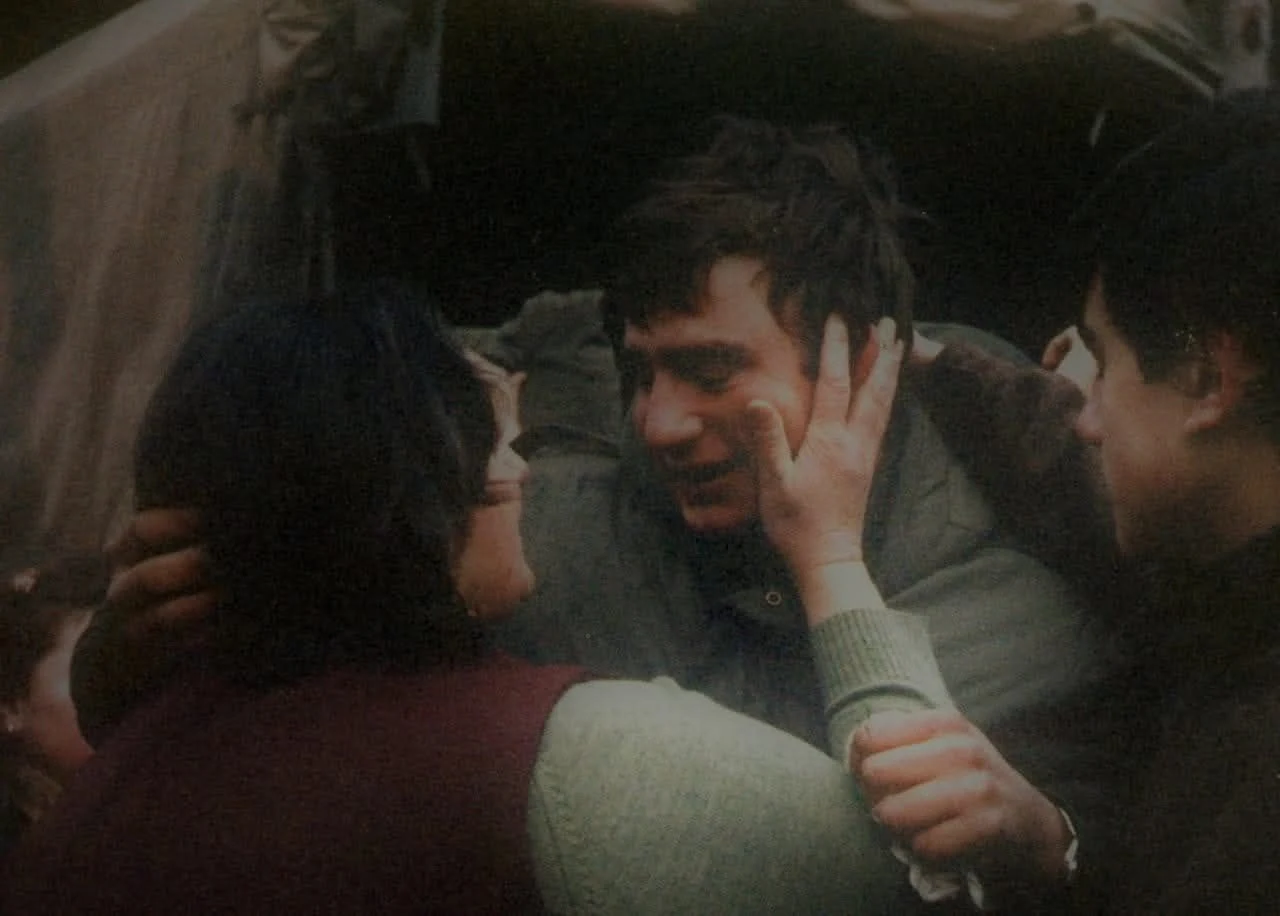The Return

Morning of the 23rd of June — but not this year — rather, of 1982. The setting is Bahía Blanca Sud station.
That Wednesday, train 325 was due to arrive from Plaza Constitución. This service ran via Pringles, and the scheduled time of arrival was 9:04 a.m.
The station looked the same as always. The arrival of the train that day seemed like just another service, one of the regular trains that came into the station as usual.
Everything appeared normal up to that point — except for one small detail. At the rear of train 325 that day, a second-class coach had been coupled. Its 103 seats were reserved for a kind of passenger not often seen in those days. In that coach were the Malvinas War Veterans. That carriage was allocated exclusively to the soldiers who, by that time, were officially recognised as war veterans.
They were boarded onto that last coach, without the possibility of moving through the train, as the door connecting it to the rest of the formation had been locked. A small ham and cheese roll and a half-litre bottle of mineral water was the “ration” provided for the journey.
There was no welcoming committee. The city, with its typical scepticism, was unaware that the returning soldiers were arriving. Hardly anyone came to greet them. Just a few family members who had somehow found out — at that time, few homes had landlines, and of course, social media or WhatsApp didn’t exist.
There was no band to greet them upon arrival — our country is so obsessed with success that, for example, if the national football team loses a World Cup final, no one turns up to welcome them home. The same thing happened with the veterans. Not even their own families had fully realised they were coming back.
The train arrived on time. A long line of passenger coaches left the last one nearly aligned with the “Bahía Blanca” sign just south of the station, near the black bridge. A few fathers, who had learned of their sons’ return, approached the station almost timidly. They had spent over 70 days filled with uncertainty and anxiety. Worried faces searched through the train, hoping to find their sons and hold them tightly at last.
Inside the second-class coach, emotions ran high. The joy of returning was genuine, yet mixed with the pain for those who had not made it back. And to that was added the bitter fact that the war had been lost — this was by no means a joyful train. Tired faces, emaciated bodies showed signs of malnutrition, revealing the hunger they had endured during the conflict — despite efforts to convince the public that our soldiers had suffered neither hunger nor cold.
During their days at Campo de Mayo, the army had tried to feed the soldiers as much as possible so they would arrive “reasonably presentable.”
Behind them were long, sleepless nights. Naval, air, and finally ground bombardments had left them no rest. They had slept in makeshift tents or, when alerts demanded, in damp, cold foxholes. The thinness of their bodies reflected just how scarce the food had been.
They had bathed only once throughout the war, and only again when they boarded the ships back to the mainland. Left behind were those nights spent shivering — from the cold and, why not, from fear — with wet feet and the constant question of where the British would come from.
Behind them remained the sounds of war — sounds only known by those who had to live through them. The whistles of bombs, the wailing of sirens, the thunder of cannons, low-flying jets at terrifying speed, shouted orders during battle, and the gut-wrenching cries of the wounded… All of it was endured by young bodies, most of whom had not yet turned twenty.
"I stood on the carriage steps because I saw my dad and got ready to hug him. He was on the platform, looking past me, trying to find me. He didn’t recognise me — that’s how skinny I was." — Guillermo.
“We felt ashamed because we had lost the war, and that weighed heavily on us. We came back defeated.”
There were heartfelt embraces, tears, a few smiles, and a flood of emotion. Orders soon arrived to board the trucks bound for command headquarters. The veterans were taken in lorries to the Fifth Army Corps.
For them, a new reality was beginning. Almost without realising, they were entering something immensely complex: the return, the process of reintegration into working life. For our Veterans, a new life was starting. Bahía Blanca Sud station stood witness to that moment.
Without doubt — once again — THANK YOU FOR SO MUCH, AND SORRY FOR SO LITTLE.

No comments:
Post a Comment